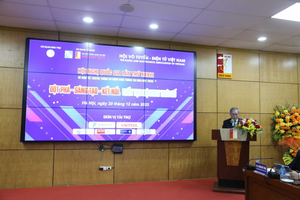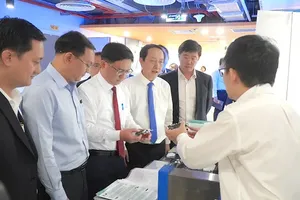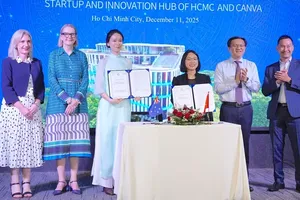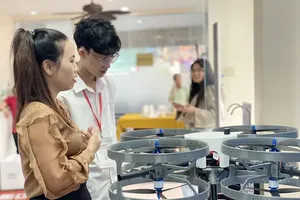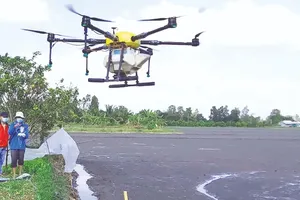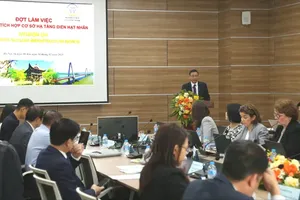
Commenting on the decrease of Vietnam’s GII position by two places to the 44th, Deputy Minister Bui The Duy said that in 2020, Vietnam stood at the 42th with a statistical confidence interval between ranks 41 and 50. This year, it stays at the 44th with a statistical confidence interval between ranks 42 and 47.
That means Vietnam remains nearly the same position in these two years and still belongs to the list of top 45 nations in the world. Remarkably, our country is the first among the lower middle-income nations. This, according to WIPO experts, is a significant achievement of Vietnam since the Covid-19 pandemic is creating various negative unexpected impacts on socio-economic, scientific-technological aspects of most countries.
Being a reliable tool to evaluate the innovation capacity of a nation, GII has been considered by the Government as one of the key administration tool since 2017, showing the high appreciation of Vietnam towards innovation in national development.
Ministries and the localities all over the country have been assigned the task of improving this index under the management of the Science and Technology Ministry. Thanks to the close cooperation among ministries, the local authorities, research centers, universities, and related businesses, Vietnam’s GII has led the lower middle-income group for the last few years.
WIPO report reveals that Vietnam’s scores in the seven GII pillars (including institutions, human capital and research, infrastructure, market sophistication, business sophistication, knowledge and technology outputs, creative outputs) are higher than the average ones of other lower-middle income economies.
What is more, in the last 10 years, Vietnam has always received higher scores than expectations for its level of development. This shows that Vietnam efficiently getting much more outputs relative to innovation inputs, making our country among the 50 GII economies with the most considerable progress. Along with China, Turkey, India, and the Philippines, Vietnam owns a potential to change the global innovation landscape in the upcoming years.
Discussing the negative unavoidable impacts of the Covid-19 pandemic to innovation in Vietnam, the Deputy Minister shared that since the Government is aware of the essential role of innovation in sustainable development and pandemic fight, domestic investments into science-technology and innovation has been maintained.
The result is that many useful products, like the SARS-CoV-2 detect kits, self-propelled robots in field hospitals, high flow oxygen concentrator, have been introduced, greatly contributing to the combat against Covid-19 nationwide and the efforts to keep the supply chain flowing smoothly.
Talking about the measures to sustainably improve Vietnam’s GII, Deputy Minister Duy mentioned the collaboration of the whole community and the Government. The national innovation system must reach a new development level where science-technology and innovation are the pillars of economic growth.
In details, the indexes of the institution pillar must be improved. The capacity to prepare and then implement suitable policies, along with post-evaluation must be enhanced, especially in the unpredictable context of Industry 4.0 and the Covid-19 pandemic.
Secondly, the human capital and research, infrastructure pillars must receive more attention. Operation models should be reformed while science-technology activities should be given more funds. Simultaneously, the learning autonomy and self-improvement of the human resources, businesses, state officials must be upgraded.
Finally, foreign investments and bilateral, multilateral trade agreements should be better exploited. It is necessary to turn business communities into more active, innovative ones.

